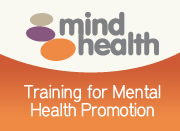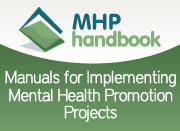Tools
- Utilities:
- Print this page
- Send this page
- Font size:
- Increase font size
- Decrease font size
Residences for Older People
 Defintion
Defintion
Within the ProMenPol project, residences for older people include older people in ‘permanent’ homes, whether this is a nursing home, or other residential facilities. It also includes older people who live at home and avail of some form of supportive service. By contrast, older persons in ‘transitory’ homes, for example hospitals and rehabilitation centres are excluded.
Relevance
The broad scope of the definition is due to differences between EU countries in relation to where older people reside (i.e. in private households or in institutions, e.g. nursing homes) and whether or not they receive health care and other services.
“there is surprisingly little information currently available about how different countries deliver care outside hospitals.” (Ettelt et. al. 2006, p.01)
For example in Austria, approximately 80% of older people requiring nursing care are treated at home by means of an ambulatory service. (Kramser & Tschachler-Roth, 2005, p.78) The aim is to include places of permanent residence that the person calls home.
Why is it Important to Include Residences for Older People?
While the overall prevalence of psychological problems does not necessarily increase with age,it is important to note specific issues in the mental health promotion of older people. For example, depression can often go undiagnosed in the older person over the age of 65 as it is mistakenly considered to be part of the ageing process. (WHO 2001) Older people are also faced with new life events such as retirement and bereavement or changing circumstances such as reduced social networks and reliance on institutional care.
As the median age of the EU is increasing. (EC 2002) it is essential to ensure the good health and wellbeing of older people. ProMenPol sees the promotion of mental health of older people as an ongoing policy issue over the coming years, both for Member States and the European Union.
Target Audience
The project will provide toolkits that focus on active ageing and maintaining a healthy mind for the older person, as well as toolkits focussing on the care staff, managers of residences and allied health professionals who provide services to older people, and their families or carers.



